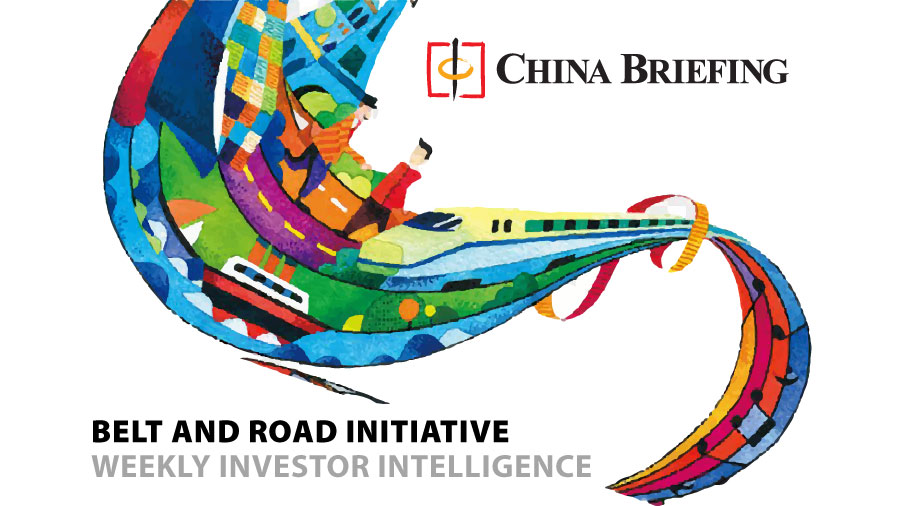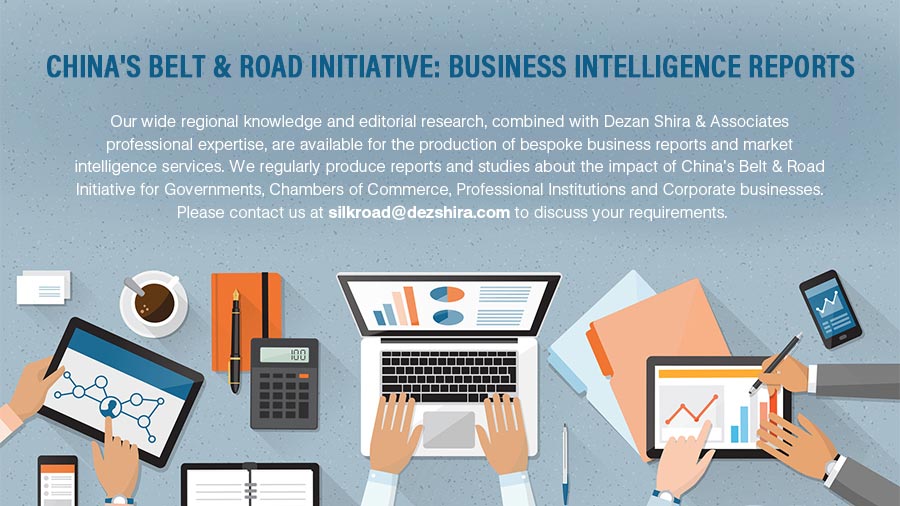Belt and Road Weekly Investor Intelligence, #27
Tuesday, May 04, 2021

Welcome to this week’s issue of China Briefing’s Belt & Road Initiative Weekly Investor Intelligence round up.
In this week’s issue, we look at how potential decoupling between the United States and China has taken a significant step forward through the introduction of a new US ‘Strategic Competition’ bill. We assess China’s response to this strategic decoupling amid speedy ratification progress of the RCEP free trade agreement, examine how Double Tax Treaties can reduce China tax burdens, and see how Russia and China are both de-dollarizing in favor of the Euro. This week’s briefing also tracks how Russia-Vietnam agricultural trade is developing due to the Vietnam-Eurasian Economic Union free trade agreement and we take a look at hi-tech developments among Central Asian consumers – soon to be a global market for entrepreneurial investors.
If you find this useful, please forward to a friend. Subscriptions can be obtained at www.silkroadbriefing.com.

Next Up in Global Decoupling: The US Strategic Competition Act
Strong anti-China sentiments within an aggressive Bill presented to Congress and a danger of US-China strategy being perceived as ‘un-negotiable’. This represents a further step forward to Global Decoupling – who will blink first?
New China Plus Investment Guide: Identifying Opportunities Within the Belt & Road Initiative
This 142-page guide is a unique study into where investment opportunities are arriving within China’s Belt & Road Initiative. As infrastructure builds are completed, investment potential increases. This book discusses the complete free trade, tax, and legal aspects of the BRI as well as detailing potential pitfalls.

What is the Ratification Status of the RCEP and When Will it Come into Effect?
Once ratified by three-fifths of the 15 signatories – namely six ASEAN countries and three non-ASEAN countries, the RCEP free trade agreement will enter into force in 60 days.
Optimizing China Profits Via Double Tax Agreements: Case Study
Overseas investors who derive dividends from China are normally subject to a 10 percent corporate income tax in China. The invested company that distributes the dividends or profits is obliged to withhold the relevant tax and file with the tax bureaus in charge. However, there are mechanisms that reduce the taxable amount.
Russia Settles Majority of Trade Debt with China in Euros for First Time
De-dollarization is increasing as Russia-China trade is growing, while Russia has the world’s 4th largest foreign currency reserves; China is 1st and United States 21st.
Kazakh & Central Asian Consumers Adapting to Hi-Tech Finance Products
Positive implications for take up of New Tech by Central Asian consumers, with the Central Asian e-commerce market growing fast. It is indicative that the Central Asian market is increasingly sophisticated with opportunities for growth.
Vietnam, Russia Show Strong Agricultural Trade Increases
The volume of Russian-Vietnamese agricultural trade has increased by more than 2.5 times over the past five years. The free trade agreement between the EAEU and Vietnam, which has been effective since October 2016, has contributed to such active growth.
About Us
Dezan Shira & Associates provide business intelligence, market research, legal, tax and compliance issues for foreign investors throughout Asia, and have 28 offices across the region. We are members of the Leading Edge Alliance, a network of related firms with offices throughout the world. For assistance with Belt & Road Initiative research, please contact us at silkroad@dezshira.com or visit us at www.dezshira.com. To subscribe to our Belt & Road Initiative portal, please click here.
- Previous Article Investing in Inland China: Chongqing, Gateway to China’s West
- Next Article The EU Suspends Ratification of CAI Investment Agreement with China: Business and Trade Implications















